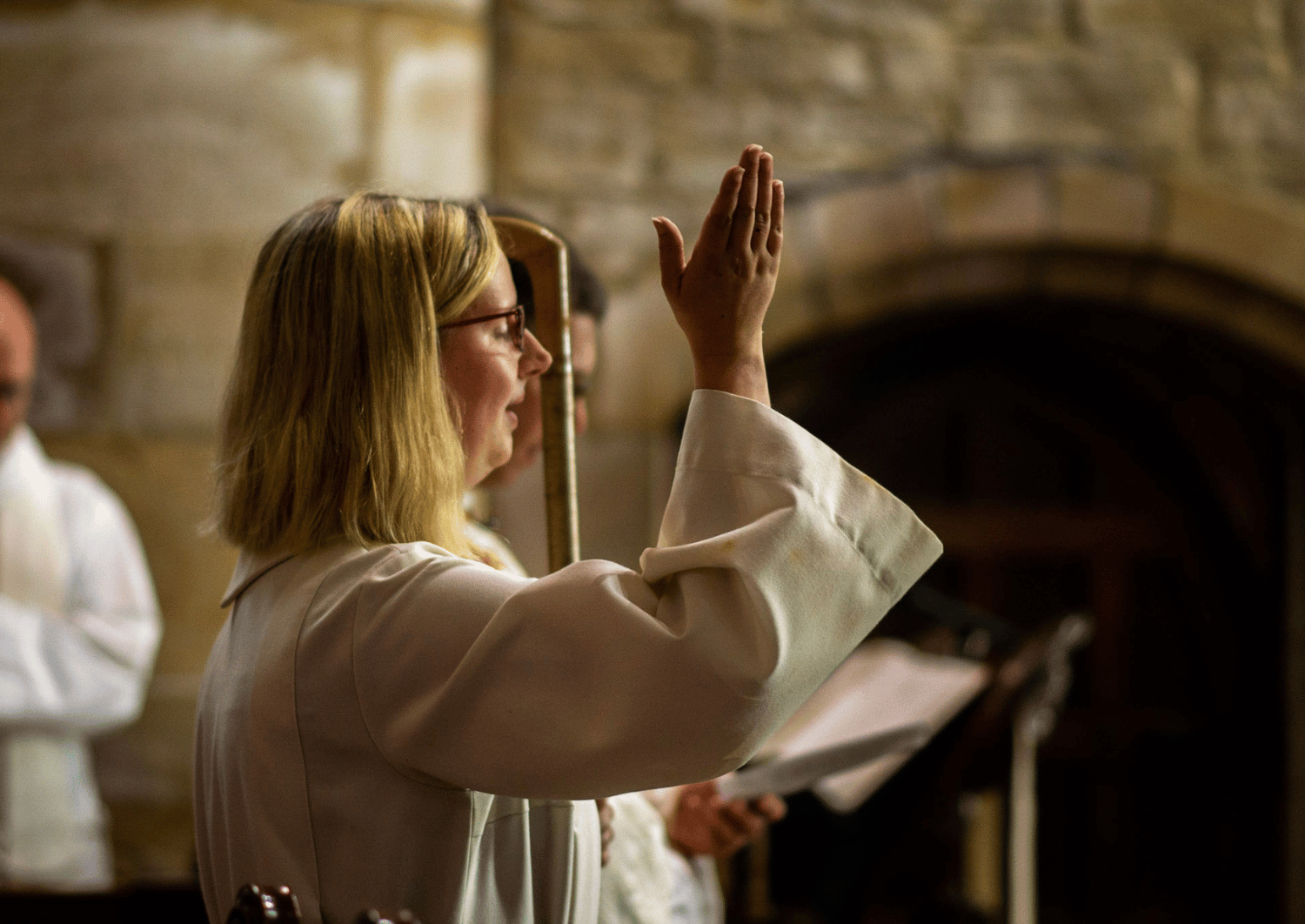 Photocredit: Church of England stock image from A Church Near You featuring a female priest
Photocredit: Church of England stock image from A Church Near You featuring a female priest
Earlier this Spring, the Diocesan Advisor for Women’s Ministry lead, Revd Fran Brealey, conducted a survey to gather insights into the experiences of those ministering within Hereford Diocese and gauge wellbeing. A total of 67 clergy and lay leaders (80% female, 20% male) responded to the online questionnaire, representing a variety of ministry roles and all deaneries. The survey aimed to understand the environment and wellbeing in ministry, identifying challenges and levels of perceived as well as actual support. Most respondents reported feeling generally safe, but the qualitative data revealed some concerns regarding harassment and inappropriate behaviour.
The Bishop of Hereford, the Rt Revd Richard Jackson commented on the findings, “I am thankful for the careful work of Fran in compiling this report. The findings are sobering and highlight not only the challenges faced by many but also the vital contribution women make to ministry across our Diocese. Women’s ministry is central to the life and leadership of our church, and I am committed to ensuring the recommended actions are prioritised and implemented, with senior leadership remaining visibly accountable in fostering a culture where all can serve with dignity, safety, and confidence."
Key Findings from the Survey
A quarter of respondents reported personally experiencing (approx. 25% "Yes" + "Maybe") or witnessing (approx. 31% "Yes" + "Maybe") inappropriate behaviour or harassment. This included bullying, aggression, belittling comments, and being undermined, affecting both male and female respondents.
One of the key themes to emerge was an extremely low rate of formal reporting of these incidents. The report suggests potential barriers, lack of confidence in processes, or lack of clarity on how to report. Whilst it was clear that respondents understood and had high levels of confidence in safeguarding procedures within the diocese, the Senior Bishop’s Staff group heard how action was needed to improve support systems for those experiencing bullying, harassment or inappropriate behaviours which do not fall within a safeguarding context.
The results highlighted that the negative experiences of harassment led to feelings of embarrassment, reduced confidence, avoidance of specific work situations, and in some cases, consideration of leaving ministry or taking time off. Support from parish colleagues, family, and friends was highly valued.
The survey revealed that perpetrators were frequently identified as individuals known within the church context (parishioners, ordained colleagues, PCC members) and this brings into question how bullying and unconscious sexist behaviours present in the parish context.
While many respondents felt confident to challenge sexist behaviour or sexual harassment, a small number did not, this may suggest a reluctance or lack of empowerment.
Female Clergy in particular face inappropriate comments on appearance, diminutive terms (e.g., "girl"), leadership challenges not faced by male colleagues, and being spoken over during meetings and the more senior a female, the higher the likely levels of inappropriate comments, behaviour, and challenges to their leadership exist.
Fiona Gibson, Archdeacon of Ludlow adds: “When I arrived in the diocese four years ago as the first woman appointed to a senior clergy role here, I was very clear that I didn’t want to be viewed as “the first female archdeacon.” I just wanted to get on with serving God and the parishes to the best of my ability. That’s still the case, as it is for my female clergy and lay ministry colleagues. What this survey shows, though, is that there can sometimes be a particular, often hidden, cost attached to being a woman in leadership in the church. I hope that its findings will encourage women experiencing harassment and inappropriate behaviour to come forward knowing they will be supported and listened to. I also hope it will encourage all of us to reflect on how we can demonstrate Christian care for one another and for our leaders – women and men.”
Lay Ministers and PTO Clergy also reported feeling undervalued, overlooked for development, used as "gap fillers," and pointed to ageism as a concern.
The survey proposed five strategic actions:
- Establish Clear, Accessible, and Trusted Reporting Mechanisms:
- Designate trained individuals/teams for confidential reports.
- Implement and publicise anonymous reporting options.
- Disseminate clear guidance on procedures and support.
- Implement Comprehensive Training and Awareness Programmes including mandating regular training for all clergy, licensed lay ministers, churchwardens, and PCC members with content to cover defining and challenging sexism, harassment, bullying, microaggressions, bystander intervention, and reporting procedures.
Conclusion
The survey provides the research team with a valuable snapshot of ministry experiences in Hereford Diocese. Revd Fran Brealey worked in partnership with the diocesan Communications lead, Sarah Whitelock to analyse the data and set out the recommendations Revd Fran Brealey, adds: “I just want to add my thanks to all those who have shared their experiences. We are now working on the introduction of better systems for reporting experiences of bullying and harassment, as well as considering how improved support and training could make our Diocese a place where all can flourish in their lay and ordained ministry roles.”